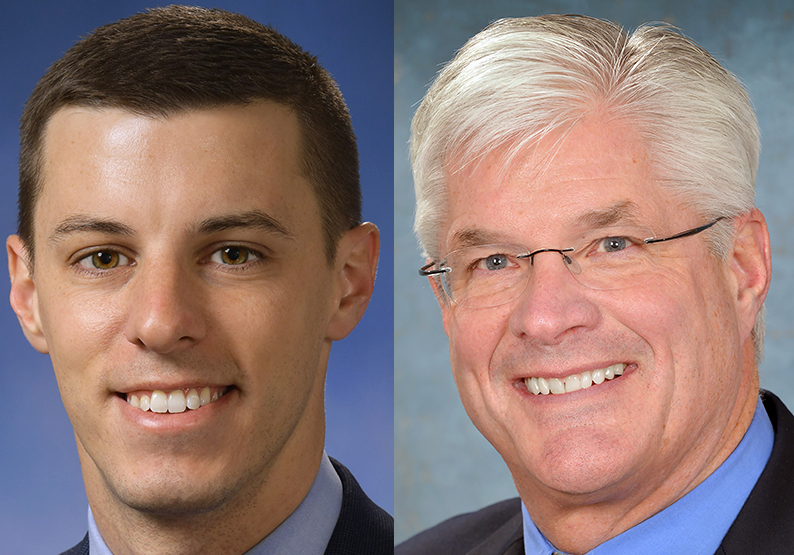
This morning, House Speaker Lee Chatfield and Senate Majority Leader Mike Shirkey delivered a response to Governor Gretchen Whitmer’s State of the State address, and because we don’t think you should have to sit through it, we’re bringing you the highlights.
First on the agenda: Fixing the damn roads. The discussion consisted mainly of Chatfield and Shirkey criticizing the lack of a full funding plan in Whitmer’s one-hour speech. Both acknowledged the need for more funding (at some unspecified time, not now of course!) and argued for finding savings elsewhere in the budget. We suggest they start by doing away with exorbitant corporate tax breaks. Nevermind the fact that the SOTS is not a budget announcement and Governor Whitmer was very clear the details of her plan would be made public during said budget discussions in March.
When asked about Whitmer’s call for Michiganders to share their experiences with bad roads and damaged cars using the hashtag #FTDR, Shirkey criticized her effort to engage with her constituents on a topic they care about as a “gimmick.”
The environment section was where this response really got interesting. Responding to a question on climate change, Shirkey said it’s “fascinating” that people in Michigan would think our actions impact the climate (news flash: they do). Nothing more there.
On PFAS contamination, Shirkey lamented that, despite having lots of data, we lack wisdom, and insisted any concrete action to protect public health must wait until wisdom catches up. We’re not sure what that means, but it’s probably safe to say that wisdom won’t counteract the negative impact PFAS chemicals are already creating in communities across the state.
Chatfield was happy to share that some in the House have already begun to explore solutions to the PFAS crisis. Technically, that is true: House Democrats have introduced bills to address contamination and failed to gain significant GOP support, but we’re not sure why Chatfield should get any credit for that.
The response also addressed auto insurance reform, where the main GOP talking point still seems to be lowering rates by providing plans with less coverage. Lee Chatfield calls this freedom, but the freedom to choose between paying an arm and a leg for insurance and opting for a plan with subpar coverage doesn’t sound like a fix for our insurance woes.
Shirkey agreed with Chatfield’s take, saying his number-one priority is eliminating unlimited coverage. When a reporter mentioned that people may go bankrupt as a result, Shirkey chuckled and said it’s impossible to create a system that eliminates risk. Yikes!
Oh, and we can’t forget the skills gap, which the governor wants to address in several ways, including debt-free community college. Unsurprisingly, Shirkey isn’t on board. When asked for an alternate solution, he suggests “just paying for it.” We’ll be sure to tell that to the millions of grads across the country currently struggling with student loan debt.
Shirkey was certainly concerned about a vague issue revolving around the “value” of higher education, which he suggested addressing by having colleges and students lay out a contract with the students’ career goals and the cost of attending school. That sounds an awful lot like the career and academic advising schools already provide, so it’s unclear what difference his mandate would make.
Overall, the main takeaway from this response seems to be that Chatfield and Shirkey want things like plans and real solutions, but they didn’t say much about what those plans and solutions might look like. We look forward to finding out.
